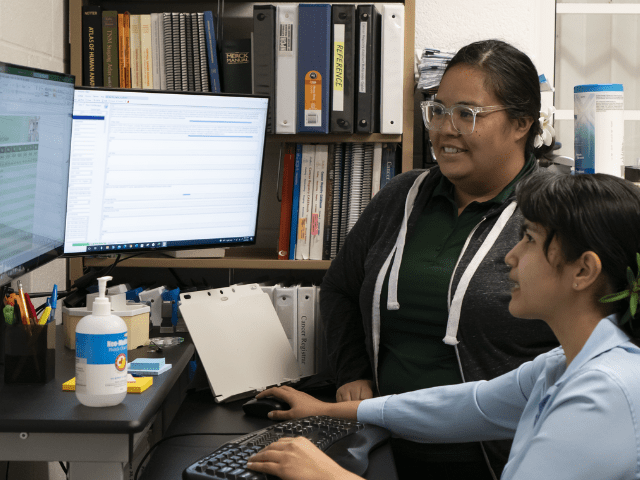
April 3-7, 2023 is National Cancer Registrars Week: Harvesters of Data to Nurture Cancer Research and the entire month of April celebrates all who work to improve health of minority people and populations across the US.
Cancer registrars throughout the US Affiliated Pacific Island (USAPI) territories of Guam and American Samoa, Commonwealth of the Northern Mariana Islands, and countries of the Republic of the Marshall Islands, Federated States of Micronesia, and the Republic of Palau will join their colleagues, fellow medical professionals, and community leaders to observe the 27th annual National Cancer Registrars Week (NCRW) on April 3-7, 2023. The 2023 theme, Harvesters of Data to Nurture Cancer Research, reflects the dedication and expertise cancer registrars bring to the cancer research, prevention, and treatment programs. These health professionals are critical to better understanding, then reducing cancer health disparities faced by minority communities — whether due to lack of screening, delays in getting treatment, or other barriers to health care.
The CDC-funded Pacific Regional Central Cancer Registry program (PRCCR) was established in 2007 by Drs. Neal Palafox and Lee Buenconsejo-Lum of the JABSOM Department of Family Medicine and Community Health. High quality and reliable cancer data is needed to support the CDC-funded USAPI comprehensive cancer control programs, policy changes that prevent many chronic diseases, and cancer research.
Cancer registrars are data information specialists that collect and code patient-level data for cancer registries. Cancer data submitted by PRCCR to CDC and reported back to the USAPI jurisdictions enable the public health departments, hospitals, and health care providers to accurately determine how common cancer is in certain populations, how well the jurisdictions are doing with detecting certain cancers early, target prevention and screening programs, and help to drive improvements in the local and regional health systems so that more cancer can be caught early and treated in their island home. USAPI data on cervical cancer led to a critical position statement from the American College of Obstetrics and Gynecology about cervical cancer screening methods in lower-resource areas like the USAPI. The statement paved the way for federally-funded feasibility studies exploring cervical cancer screening by using HPV DNA testing instead of Pap smears, which is what the World Health Organization recommends as part of the effort to eradicate cervical cancer in most countries around the world.
As people who live in the USAPI often travel off-island to other jurisdictions, the US, and internationally for portions of their cancer care, PRCCR exchanges cancer data with other registries and also partners with the Hawaii Tumor Registry (HTR), operated by Dr. Brenda Hernandez and team at the University of Hawaiʻi Cancer Center. HTR shares data annually with PRCCR and also assists with data quality reviews and specialized training for our pacific cancer registrars.
Mahalo, kommol tata, kulo malulap, kalangan, kinisou chapwur, kammagar, ko mesulang, si yu`us ma`ase, olomwaay, and fa`a fetai tele lava to our extended JABSOM cancer surveillance and cancer control family in the USAPI and to our registry colleagues at the UH Cancer Center!
For more information, the “Cancer in the U.S. Affiliated Pacific Islands” biennial publication is available on the Pacific Cancer Programs’ website.
Submitted to UH Med Now by the team at the JABSOM Department of Family Medicine and Community Health Pacific Regional Central Cancer Registry program.